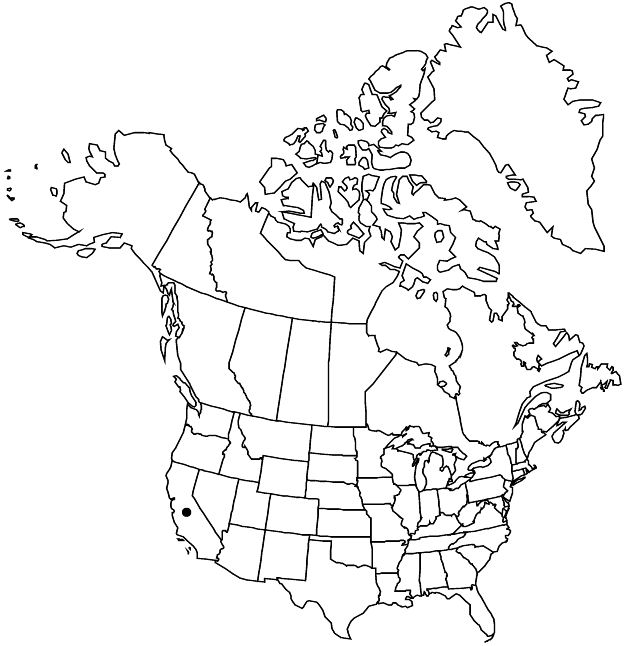Malacothamnus davidsonii
Leafl. Bot. Observ. Crit. 1: 208. 1906.
Shrubs, to 3(–5) m, branches usually stout, indument white to tawny, dense (shaggy-tomentose), stellate hairs sessile or stalked, 10–30-armed, arms 0.2–1.5 mm. Leaf blades ± round, 3-, 5-, or 7-lobed, 5–11(–20) cm, thick, surfaces: adaxial tawny and densely stellate-hairy (velvety to scabrous-tomentose), basal lobes overlapping. Inflorescences spicate to racemose, flower clusters usually short-pedunculate, glomerate; involucellar bractlets subulate, 1.5–4 × to 1 mm, usually less than 1/2 calyx length. Flowers: calyx campanulate, 5–9 mm, lobes triangular to ovate, 3–5 × 1.8–3.2(–4) mm, slightly longer than wide, slightly longer than tube, apex acute to short-mucronate, densely stellate-hairy, hairs 10–30-armed; petals mauve, to 1.5 cm. Mericarps 2–3 mm. 2n = 34.
Phenology: Flowering Jun–Aug.
Habitat: Slopes, washes, chaparral
Elevation: 200–700 m
Distribution

Calif.
Discussion
Malacothamnus davidsonii occurs on the central Coast Ranges of San Luis Obispo and Monterey counties and Transverse Ranges in Los Angeles County. It intergrades with M. fasciculatus in Little Tujunga and Pacoima canyons in Los Angeles County.
Of conservation concern.
Selected References
None.